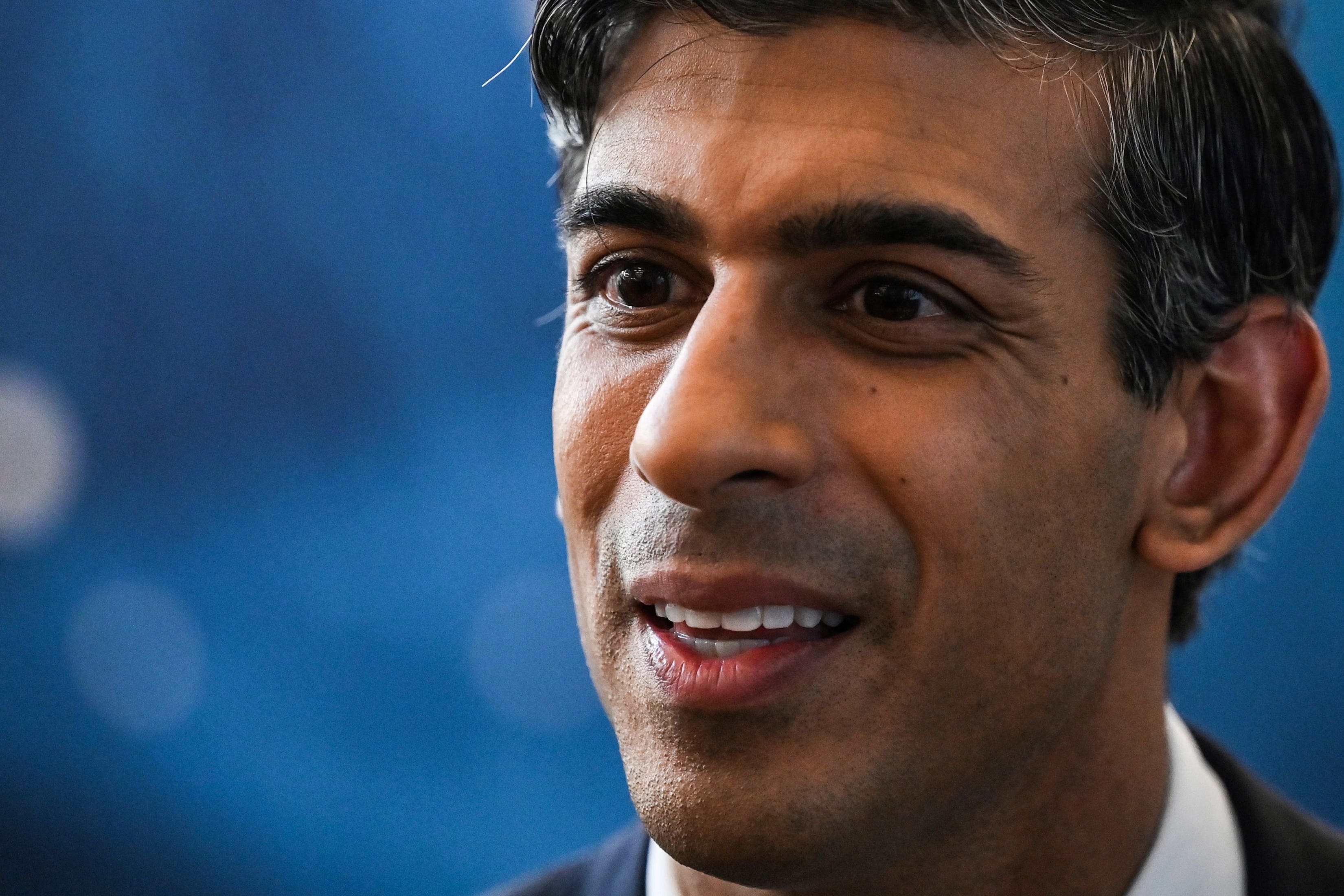Sunak says no deal yet on Northern Ireland protocol
Mr Sunak met with Stormont leaders earlier on Friday

Rishi Sunak has said “there’s more work to do” on reaching a deal with the European Union to fix the issues with Brexit’s Northern Ireland protocol, amid speculation that an agreement could be close.
The prime minister stressed “We have not got a deal yet” as he vowed to continue negotiating with the European Commission “intensely”.
Mr Sunak met with Stormont leaders earlier on Friday amid mounting speculation that the government and the EU are on the cusp of unveiling a deal on the contentious trading arrangements between Great Britain and Northern Ireland.
Speaking to broadcasters in Downing Street after returning from his trip, the prime minister said: “Today I had positive conversations with political parties in Northern Ireland about our ongoing discussions to resolve the Northern Ireland protocol.
“Now it’s clear that we need to find solutions to the practical problems that the protocol is causing families and businesses in Northern Ireland, as well as address the democratic deficit.
“Now there’s more work to do. And that’s why my ministerial colleagues and I will continue talking to the European Union intensely to find solutions that protect the Belfast Good Friday Agreement and Northern Ireland’s place in our single market.”
Asked if he was confident he would get there, Mr Sunak said: “As I said, there’s work to do. We have not got a deal yet.”
The five main Stormont parties – Sinn Fein, the Democratic Unionist Party (DUP), Alliance, the Ulster Unionist Party and the SDLP – were invited for individual meetings with Mr Sunak.
It was put to the prime minister that DUP leader Sir Jeffrey Donaldson had said the EU needed to “stretch itself to achieve a deal”.
Asked if he agreed, Mr Sunak said he had set himself “tests” on any potential agreement with Brussels, including “crucially that we address the democratic deficit”.
Following his visit to Northern Ireland, the prime minister is set to join European leaders in Germany this weekend for the Munich Security Conference – and the protocol is likely to feature in discussions on the margins of the gathering.
In another apparent sign of progress, foreign secretary James Cleverly was in Brussels on Friday for a meeting with European Commission vice-president Maros Sefcovic – an encounter both politicians described as “constructive”.
The UK and the EU have been engaged in substantive negotiations over the workings of the protocol, which was included in the withdrawal agreement to ensure the free movement of goods across the Irish land border after Brexit.
The protocol instead created economic barriers in relation to goods being shipped from Great Britain to Northern Ireland.
It has proven to be deeply unpopular with unionists, who claim it has weakened Northern Ireland’s place within the UK, and the DUP has used a Stormont veto to collapse the power-sharing institutions in protest at the arrangements. The immediate future of devolution at Stormont therefore rests on whether or not the DUP is content with any new protocol deal.
After meeting with Mr Sunak, the party’s leader expressed hope that the UK and EU can strike a deal that addresses unionist concerns.
“Clearly this is a big moment. The next generation of Northern Ireland and its people requires us all, I think, collectively to use our best efforts – particularly the prime minister and the European Commission president – to get these issues resolved, and to get to a place where the political institutions can be restored,” said Sir Jeffrey.
“The decisions that will be taken by the prime minister and by the European Commission will either consign Northern Ireland to more division, or they will clear a path towards healing and to the restoration of the political institutions.”
He also stressed that the timing of any deal was less important than its contents. “I am not focused on timescales here, I am fundamentally focused on getting this right,” he said.
Giving his assessment on Friday, Irish prime minister Leo Varadkar said “we’re not there yet” on a deal but added that he was “quietly confident” there could be an agreement within a fortnight.
Subscribe to Independent Premium to bookmark this article
Want to bookmark your favourite articles and stories to read or reference later? Start your Independent Premium subscription today.



